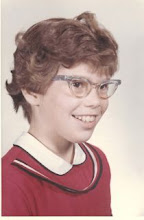I've been asked to participate in a PSA at ALA on the subject of freedom of speech. I was asked to read from a banned/challenged children's book and share why it was challenged or share what the passage I read meant to me.
 |
| BTW, I dislike this cover which presumes Gilly is 8, rather than 12ish |
Then I thought about reading from Catherine Called Birdy or The Midwife's Apprentice, both written by my hero, Karen Cushman and both challenged. The gall of Karen to use the word "piss" or to write about childbirth. Well, she's from San Francisco -- you know how liberal they are there. So what if she created two powerful female characters who make their own distinct marks on their confining and oppressive worlds.
I also pondered reading from Neal Schusterman's Unwind, the book I actually threw across the room, so horrified and scared was I during a certain scene. That's what good books can do to you: they can make you feel. Make you think.
But the answer to what to read for the PSA came to me like a thunderbolt. Was there any other option? Of course, I would read from Susan Patron's The Higher Power of Lucky. Though she was *unfortunate* enough to win the Gold in 2007, Susan is considered a Silver Sister by Cindy Lord, Jenni Holm and yours truly (honor recipients that same year). The fuss over her first book in the Lucky trilogy still makes me wonder. One word. One word. How is it that one word could cause such a fuss, such a commotion?
Don't even get me started on this! Those same concerned adults who wouldn't purchase Higher Power of Lucky for their libraries are sporting buttons that say "Team Gale" or "Team Peeta." Can we say "violence against children?" And where is the commotion from these same caring adults about the word "retarded"? Or "gay?" I think these particular words have caused far more damage to our young readers than the anatomically correct term for a particular body part on a male (dog, in the case of Patron's book).
I am a mom. And I helped raise two pretty darned amazing kids. Who are readers. And I am going to be honest here: I balked when my son checked out Milton Meltzer's biography of Benjamin Franklin, replete with descriptions of Ben's affairs. My son, however, was ten. I think, as a mom, I had a right to say, "Honey, this book isn't for you. Right now." And I wanted to KILL the teacher who assigned Stone Fox to my tender-hearted 9-year-old daughter. I wanted more than anything to spare my kids the unpleasant, the painful.
The thing is: I should have thought back to my own childhood. When I wanted to check out Gulliver's Travels in third grade, and the librarian nixed it, my dad said, "Let her check it out." That was the greatest gift he could ever have given me. Oh, that story went WAY over my head. But I knew in that moment that my dad trusted me. Trusted me to absorb what I could. And I was buoyed up by the fact that he wasn't about to let an assortment of words stand in my way.
Here's the deal: no one knows what anyone else can handle. I couldn't handle Gulliver's Travels. My daughter couldn't handle Stone Fox. My son was nearly undone by Taran Wanderer. Had each of us been shielded from these books, would we have been the people we are now? No. Good books are not lollipops, sweet and quickly savored. They are struggled over, wrangled with, carried in the heart. Reading "the" book is not unlike Jacob's wrestling match with the angel. Afterwards, we will be changed. Marked. We may even limp. So be it.
One word, one phrase, one uncomfortable moment does not make a book. My darling friend, Nancy Pearl, says there are fifty books everyone needs to read. But it is not the same fifty books for everyone.
I say amen to that.




You tell 'em, Kirby. I long for the day when hate will be a "dirtier" word than scrotum.
ReplyDelete